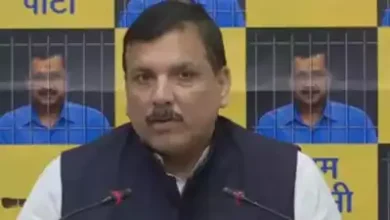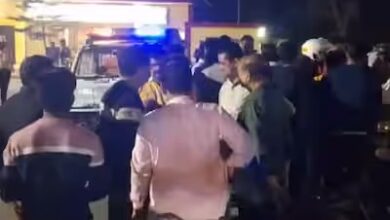Matua society accepts CAA as essential to citizenship without fear of being labeled as foreigners
The Matua community now looks forward to a future free from the fear of being labeled as foreigners, with opportunities in public sector work and access to government schools, thanks to the enactment of the Citizenship Amendment Act (CAA).

Matuas are a small group of Hindus who came to India after the Partition and after Bangladesh was created as a result of religious persecution. They were originally from East Pakistan.
Following the notification of the CAA’s rules on Monday, the government will begin bestowing Indian nationality to persecuted non-Muslim migrants from Pakistan, Bangladesh, and Afghanistan who came in India before to December 31, 2014, including Hindus, Sikhs, Jains, Buddhists, Parsis, and Christians.
“We can now obtain legal citizenship of this country, which is the difference between this new citizenship act and the earlier one,” said Mahitosh Baidya, general secretary of the community organization Matua Mahasangha.
“The absence of appropriate papers attesting to our citizenship in this nation has caused us to encounter great difficulties. There have been times when our kids have not completed their education in public schools. Due to a lack of valid documentation proving their citizenship, some even had to resign from official positions “added the speaker.
1,551 Hindu Bangladeshis were up of the population Give up on India and rejoice at the CAA’s implementation.
Assam sees anti-CAA demonstrations; burning effigies of the PM and HM
In response to claims that Matuas had voter, Aadhaar, and ration cards, Baidya clarified that these records are insufficient evidence of citizenship.
“Most of them don’t have valid documentation, and these documents won’t mean anything if there is any scrutiny about their citizenship as they don’t have proper citizenship certificates,” he said.
A number of prominent Matua figures, who want to remain anonymous, said that voter and Aadhar cards are readily obtained via unlawful means.
Asim Sarkar, a BJP MLA and Matua leader, highlighted that having voter and Aadhaar cards does not equate to citizenship in light of the difficulties encountered by the Matua people.
He cited instances in which the finding of forged papers led to the booking of Matuas or other Hindu refugees under the Foreigners Act.
“A voter’s card is never evidence of nationality. Voting is essentially permitted by law, he said.
Referred to as their “second independence day,” Matua leaders were upbeat about the CAA’s ability to resolve long-standing issues.
With an estimated three million people living in the state, the group has the power to sway more than thirty assembly seats in Nadia as well as the districts of North and South 24 Parganas that border Bangladesh in favor of a political party.
populace
Residents of Shaheen Bagh are filled with fear and anxiety one day after the CAA notifies the population
“My home has always been India.”
Political parties have been vying for the support of the Matuas since the 1990s. Their large population and inclination to vote in unison make them a valuable voting bloc similar to minority groups, especially when it comes to the BJP’s position on the CAA.
The CAA has been praised by activist Mohit Ray as a ray of light for Hindu refugees, who have always been afraid that their lack of formal documents would make them illegal immigrants.
“CAA will bring a new dawn in the lives of the Hindu refugees,” he said.
Ray, who now serves as the Bengal BJP’s spokesman, said that the CAA would make it possible for refugees to integrate into Indian society and take use of all government programs as legitimate citizens of the nation.
“The deletion of Bengal’s Aadhaar cards caused uproar a few days ago. If you look into it, the majority of them entered the nation after December 31, 2014. Thus, the same would have occurred to the refugees who had arrived in our nation before to 2014 if the CAA had not been put into effect,” he said.
populace
Indian Muslims have the same rights as Hindus and don’t have to worry about the CAA: Center







